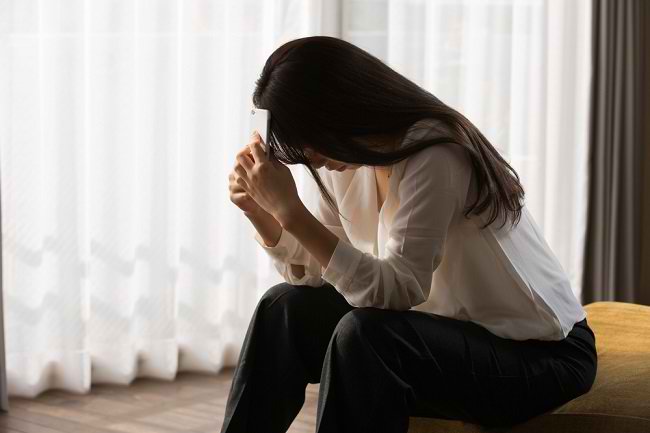Lethargy is a condition when the body feels very tired and still does not improve after resting. Not only tired, someone who is lethargic will find it difficult to move because they are often sleepy, lethargic, and have difficulty concentrating. This condition can be caused by physical or psychological disorders.
Severe fatigue or lethargy often appears as a sign or symptom of a particular disease. In contrast to feeling tired or tired from activities, lethargy generally does not go away or improve even though the sufferer is sleeping or resting.

Therefore, when you experience lethargy, you should see a doctor so that the doctor can conduct an examination to determine the cause and provide appropriate treatment.
Symptoms That Appear When Lethargy
Lethargy can be described as feeling tired, difficult to concentrate, easily drowsy, and lethargic, resulting in slower body movements. Complaints of lethargy often make it difficult for sufferers to carry out daily activities or work.
In addition to severe fatigue, lethargy is also usually accompanied by several other symptoms, such as:
- The body lacks energy even though you have had enough sleep
- Changes in mood or mood
- Easily bored or restless
- Dazed and less alert or lost focus
Babies and children who are lethargic will look less active, lose their appetite, don't want to breastfeed, don't want to play, and are indifferent.
Some Causes of Lethargy and How to Treat it
Lethargy or fatigue that lasts continuously and does not improve even after resting needs to be watched out for. This condition is usually caused by certain diseases.
There are several diseases or medical conditions that can cause lethargy, including:
- Problems with the brain, such as stroke, meningitis, severe head injury, and hydrocephalus
- Thyroid disorders
- Sleep disorders, including insomnia and sleep apnea
- Kidney problems, such as acute or chronic kidney failure
- Psychological disorders, such as depression, postpartum depression, and pre-menstrual syndrome (PMS)
- Anemia
- Malnutrition or malnutrition
- Side effects of drugs, for example chemotherapy, antipsychotics, and antihistamines
In addition, lethargy can also be caused by dehydration or poisoning, such as carbon monoxide poisoning.
Because lethargy can be caused by many things, you need to see a doctor if you feel this complaint. To determine the cause of your lethargy, the doctor may perform a physical examination and supporting examinations in the form of blood tests, urine tests, and radiological examinations, such as CT scans or brain MRI.
If you suspect that your lethargy is caused by a psychological disorder, your doctor may also perform a psychiatric examination or refer you to a psychologist or psychiatrist.
Once the cause of lethargy is known, the doctor can provide appropriate treatment for the cause. For example, lethargy caused by dehydration will be treated with fluids, either orally (by mouth) or intravenously, while lethargy due to anemia will be treated with blood-boosting drugs.
To treat lethargy caused by psychological problems, such as depression, your doctor may prescribe antidepressants and suggest psychotherapy.
People who are lethargic are also advised to lead a healthy lifestyle by eating nutritious foods, drinking more water, exercising regularly, getting enough rest, and managing stress well.
Symptoms of Lethargy to Watch Out for
Lethargy needs to be watched out for and needs to be checked by a doctor immediately if it has been felt for more than 2 weeks and does not get better. In addition, lethargy also needs to be watched out for if it is accompanied by other symptoms, such as:
- Chest pain
- Weakness or paralysis of limbs
- Drastic weight change
- Severe headache
- Hard to sleep
- Hard to breathe
- Loss of consciousness or coma
- Seizures
- Fever
Lethargy in infants and children needs to be watched out for if accompanied by the following symptoms:
- Fever
- Difficult to wake up when sleeping
- Rashes appear on the skin
- Severe diarrhea and frequent vomiting
- Experiencing signs of dehydration, such as dry mouth or crying but no tears
Lethargy may sound harmless and is often overlooked, but this condition should not be taken lightly. When you experience lethargy, immediately consult a doctor to get the right treatment.









